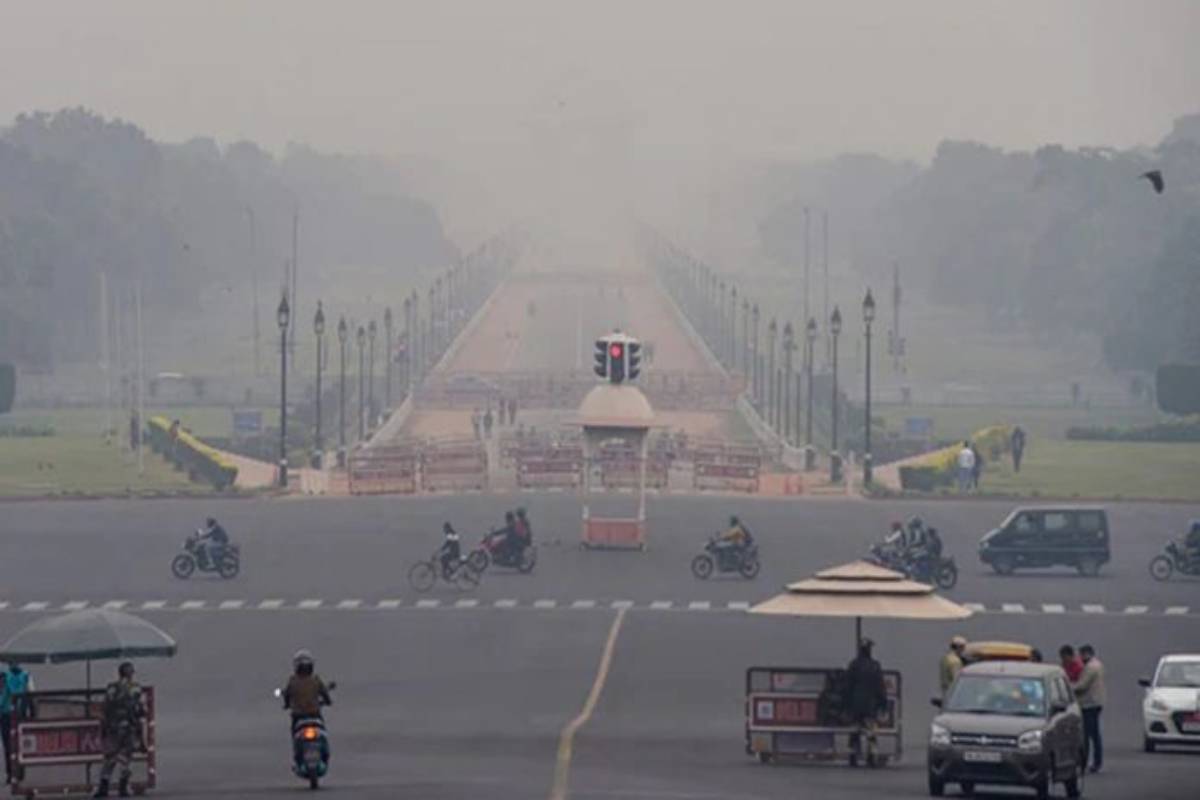The National Human Rights Commission (NHRC) held a third round of meetings with the chief secretaries of Delhi, Haryana, Punjab and Uttar Pradesh and asked to submit a detailed report on how to prevent air pollution in the Delhi-NCR region November 25.
The meeting was held under the chairmanship of NHRC Chairman Justice Arun Kumar Mishra on the air pollution even as the National Capital and the NCR region continued to be covered with a thick blanket of smog.
Advertisement
In the last hearing, the chief secretaries were summoned to contain air pollution in Delhi-NCR.
The NHRC has asked the four states as to when people will breathe clean air. They have been asked to appear before the commission with their action plans by 25 November. Punjab has been asked to make strategic interventions with technologies and NCT Delhi to provide state-of-the-art machines for dust removal and sanitation and to install warning boards for the origin of toxic gases and excessive air pollution.
In fact, the commission has intervened even after years of exercise regarding increasing air pollution, not seeing the matter being made. In this sequence, in the fourth hearing of this matter on Friday, the commission has warned the states and Union Territories. The commission has said that by taking measures as soon as possible, remove the problem of breathing, fix accountability on the concerned negligence.
Every year from September to December, air pollution becomes a big issue due to stubble burning. During this time, the NCR areas of the four states including Delhi are the worst affected by this phenomenon. This time around, due to stubble burning in Punjab, the entire NCR, including the National Capital Delhi, is suffering from air pollution.
Therefore, during the hearing, the commission, while agreeing with the arguments of the farmers in Punjab that they get less time for paddy harvesting and separate sowing, and stubble disposal is a costly affair for them, has asked the state government to provide necessary machines to each farmer.
A strategic action plan has been suggested to make these available to the poor farmers free of cost and to provide the machines at a nominal price. It has also been said in the order that the government should tell how the availability of these machines will be made known to the farmers through panchayats.
In view of the very dangerous level of dust disposal and air pollution in NCT Delhi, the states have been asked to take immediate mitigating measures. The commission has warned Delhi that only water cannons will not work, but concrete measures will have to be taken in this direction.
The commission said that it is unfortunate that even now we are doing manual scavenging and people are falling prey to poisonous gases during cleaning. It asked who will take responsibility for this. The NHRC chief said it is their responsibility to make available state-of-the-art cleaning equipment and life-saving systems. Make sure the sweeper doesn’t die. Wherever poisonous gases emanate from manholes, there should be an arrangement of a warning board with special light.
The commission said its priority is to assess the mitigation measures being taken at the micro level and formulate a concrete strategy for further work, so that people can get a chance to breathe in a cleaner environment.
Earlier on November 12, the NHRC had held a meeting on the issue. It was attended by Uttar Pradesh Chief Secretary Durgashkanr Mishra, Haryana Chief Secretary Sanjeev Kaushal and Punjab Chief Secretary Vijay Kumar Janjua. Delhi Principal Environment Secretary Anil Kumar Singh Special Secretary Environment Dr. S Jayachandran had also joined.
The Commission said beyond giving the dates at the earliest, its intention is to work in a coordinated manner by preparing an action plan. In the meeting, the commission also sought information about the action plan of the states regarding the disposal of waste coming out of the hospitals and how many hospitals have been given notices for not doing so.









